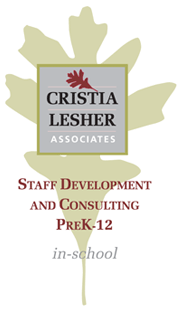Date: January 28th, 2009
Participants will use interlocking cubes to solve various spatial, numerical, and logic problems. Some of these problems will come in the form of games or puzzles. Upon completion of the workshop participants will know a variety of manipulative-based problem solving activities, as well as how to use manipulatives to introduce more sophisticated topics such as […]
Click here for more
Date: January 28th, 2009
Participants will use attribute blocks to explore logical thinking in the concrete and to play various games and puzzles relating to observations, descriptions, comparisons, patterns, functions, sets, and Venn diagrams. Upon completion of the workshop, participants will be able to teach the concepts covered through an active, hands-on approach and to assess student performance.
Click here for more
Date: January 28th, 2009
Participants will explore visual approaches to understanding percentage. Other problem solving approaches will be used to help students discover needs and uses for percentage and to formulate algorithms.
Click here for more
Date: January 28th, 2009
Participants will use pattern blocks to explore various geometric concepts: reflectional and rotational symmetry, names of shapes and their attributes and relationship to other shapes, similarity and congruence, angle measures, area and perimeter, as well as other geometric terms and puzzles. Upon completion of the workshop, participants will be able to teach the concepts covered […]
Click here for more
Date: January 28th, 2009
Participants will use colored chips and dice to play games and to provide a concrete model for understanding positive and negative numbers and operations with them. Upon completion of the workshop, participants will be able to teach the concepts covered by a purposeful transition through concrete, pictorial, and symbolic stages of representation and to assess […]
Click here for more
Date: January 28th, 2009
Participants will be led through classroom activities that use interlocking cubes and dice to provide a concrete model for patterns, counting, perimeter, area, volume, bar graphs, word problems and operations, and place value sense in base three.
Click here for more
Date: January 28th, 2009
Participants will play games and do other activities using dice, graph paper, and base ten blocks as a concrete model for understanding the concept of decimals, saying decimal numbers, ordering decimals by size, and operations with decimals. Upon completion of the workshop, participants will be able to teach the concepts covered by a purposeful transition […]
Click here for more
Date: January 28th, 2009
Participants will use chips, dice, and algebra tiles to provide a concrete model for understanding typical algebra concepts, such as integers, addition and subtraction of polynomials, distributive property, FOIL, factoring of trinomials, and solving equations, linear and quadratic. Participants will also look at sequences of tile arrangements as an avenue to writing algebraic expressions and […]
Click here for more
Date: January 28th, 2009
Using interlocking cubes, square tiles, and linear pieces, participants will build two and three dimensional forms and will measure the perimeter and area of rectangles and the surface area and volume of rectangular prisms with manipulatives. Formulas for these calculations will emerge from the geometry of our constructions as patterns, then as generalizations, and finally […]
Click here for more
Date: January 28th, 2009
This Institute for teachers focuses on using hands-on and problem solving approaches to help students meet the standards, whether they are in general or special education. It will be tailored to meet the needs of the requesting school or district. Description: This Institute will promote a model for mathematics that stresses understanding, reasoning, problem solving, […]
Click here for more
